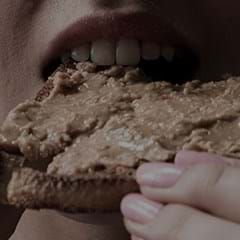In a world saturated with fast food it’s probably not surprising that a lot of people are also looking for a fast fix. Let’s face it, we live in an age of instant gratification – once that hunger has been satisfied with a cheeseburger and fries, the next step is often a guilty search the perfect “miracle diet” to reverse the effects.
And, of course, the diet industry has been all too happy to help – the bookstores are crammed with recipe books and guides to losing weight fast, the Internet is abuzz with “top ten tips” and the latest “breakthrough” in weight loss “research”.
Deep down most of us know the truth – getting fit and trim and healthy is a lifestyle choice that involves change, commitment and a common sense combination of exercise and nutritional options. Chances are, if it looks too good to be true, then it probably is.
But the fad diets just keep on coming, so to help you spot one before it’s too late, we went to Professor David Cameron-Smith, Chair in Nutrition at the University of Auckland in New Zealand, and a world expert in obesity, nutrition and exercise.
Here are his five ways to spot a dodgy diet.
- It singles out one particular food group: “The moment you demonize a particular food group – bread is the cause of, meat is the cause of, yoghurt is the cause of – as soon as you do that to a particular food, it’s got the hallmarks of a fad.
- Too many rules: “If you have to follow overly rigorous rules in relation to the combinations, the timing, the constituents of a meal, then it is also potentially a fad.”
- The magic bullet theory: “If you need to rely on a rare, interesting, obscure ingredient or supplement, then it’s undoubtedly a fad.”
- The miracle breakthrough: “If it’s based on a scientific discovery or breakthrough that only one person has come across, then buyer beware.”
- It claims to “switch” something on or off in your body: “The hallmark of human beings is that we can eat anything, any place, any time. And we’re all largely the same. So, it’s unlikely there is a mysterious switch that needs to be flicked on or off, that there is a combination of the ways in which you cook, prepare or mix nutrients that’s somehow going to have a magic effect. So, there no secret to be unlocked, no mysterious knowledge.”
David is a realist, though. The conflicting information and the latest fads will keep on coming for two big reasons, he says. “One, everyone is an expert – everyone eats, so everyone has an opinion. It’s the one thing we all have some point of reference and personal believe structure about, in terms of what we think is good for us. And two, there is money to be made, so there will always be unreliable things pedalled at us.”
We believe the secret to dietary success is to take a sustainable approach to healthy eating. If you need a helping hand that’s where the Les Mills 21 Day Challenge comes in. Structured around the three weeks it takes to make (or break) a habit, this 21 day fix will help you reset your eating habits and set you up for long-term healthy eating.








